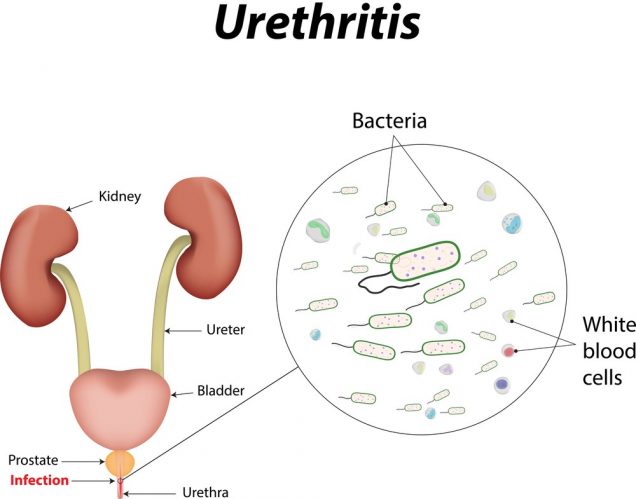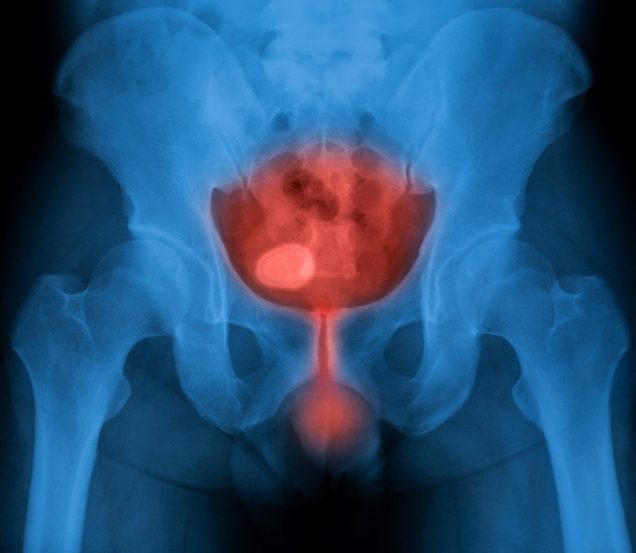NGU (Non-Gonococcal Urethritis)
Contents
What is NGU?
NGU (Non-Gonococcal Urethritis) is an infection of the urethra caused by pathogens (germs) other than gonorrhea. Several kinds of pathogens can cause NGU, including:
- Chlamydia trachomatis
- Ureaplasma urealyticum
- Trichomonas vaginalis (rare)
- Herpes simplex virus (rare)
- Adenovirus
- Haemophilus vaginalis
- Mycoplasm genitalium
NGU is most often caused by chlamydia, a common infection in men and women. The diagnosis of NGU is more commonly made in men than women, primarily due to anatomical differences.
How is NGU contracted?
Sexual
- Most germs that cause NGU can be passed during sex (vaginal, anal or oral) that involves direct mucous membrane contact with an infected person.
- These germs can be passed even if the penis or tongue does not go all the way into the vagina, mouth or rectum, and even if body fluids are not exchanged.
Nonsexual
- Urinary tract infections.
- An inflamed prostate gland due to bacteria (bacterial prostatitis).
- A narrowing or closing of the tube in the penis (urethral stricture).
- A tightening of the foreskin so that it cannot be pulled back from the head of the penis (phimosa).
- The result of a process such as inserting a tube into the penis (catheterization).
Perinatal
During birth, infants maybe exposed to the germs causing NGU in passage through the birth canal. This may cause the baby to have infections in the:
- eyes (conjunctivitis)
- ears
- lungs (pneumonia)
Signs and Symptoms of NGU Infection
Men (urethral infection)
- Discharge from the penis
- Burning or pain when urinating (peeing)
- Itching, irritation, or tenderness
- Underwear stain
Women (vaginal/urethral infection)
The germs that cause NGU in men might cause other infections in women. These might include vaginitis or mucopurulent cervicitis (MPC). Women may also be asymptomatic (have no symptoms). Symptoms of NGU in women can include:
- Discharge from the vagina
- Burning or pain when urinating (peeing)
- Abdominal pain or abnormal vaginal bleeding may be an indication that the infection has progressed to Pelvic inflammatory Disease (PID)
- Anal or Oral Infections
- Anal infection may result in:
- Rectal itching
- Discharge or pain on defecation
Oral infection may occur. Most (90%) are asymptomatic, but some people might have a sore throat.
Testing for NGU
An NGU diagnosis is made when a man has urethritis (inflammation of the urethra), but gonorrhea is ruled out because he has a negative gonorrhea culture and/or gram stain.
Other tests include:
- Chlamydia culture
- Urinalysis (sometimes, but rarely)
Women:
- Chlamydia culture
- Gonorrhea culture to rule out gonorrhea
Prevention and Risk Reduction
- Abstinence from sex is the best form of prevention.
- Using latex condoms from start to finish every time you have oral, vaginal or anal sex.
- Having sex with only one uninfected partner whom only has sex with you (mutual monogamy).
- Water-based spermicides can be used along with latex condoms for additional protection during vaginal intercourse. Use of spermicide is not recommended nor found to be effective for oral or anal intercourse.
- Have regular check-ups if you are sexually active.
- If you have an STD, don’t have sex (oral, vaginal, anal) until all partners have been treated.
- Prompt, qualified and appropriate medical intervention, treatment and follow-up are important steps in breaking the disease cycle.
- Know your partner(s). Careful consideration and open communication between partners may protect all partners involved from infection.
Treatment of NGU Infection
The main treatments for NGU are:
- Doxycycline 100 mg 2-3 times a day for 10-14 days
- Zithromax® (azithromycin) 1.0 gm a single dose
- Zithromax® Z-pak® (azithromycin) – 500mg on day 1, followed by 1 tab (250mg) once a day for 4 more days
Recommended treatment for recurrent/persistent urethritis:
Metronidazole with Erythromycin
A woman who is pregnant, or thinks she might be, should tell her doctor. This will ensure that a medicine will be used that will not harm the baby.
Follow-up
- Take all medications-even if you start to feel better before you finish the bottle.
- Treat all partners.
- Treat gonorrhea if it is not ruled out.
- Inform all partners.
- Abstain from sex until all partners are treated.




